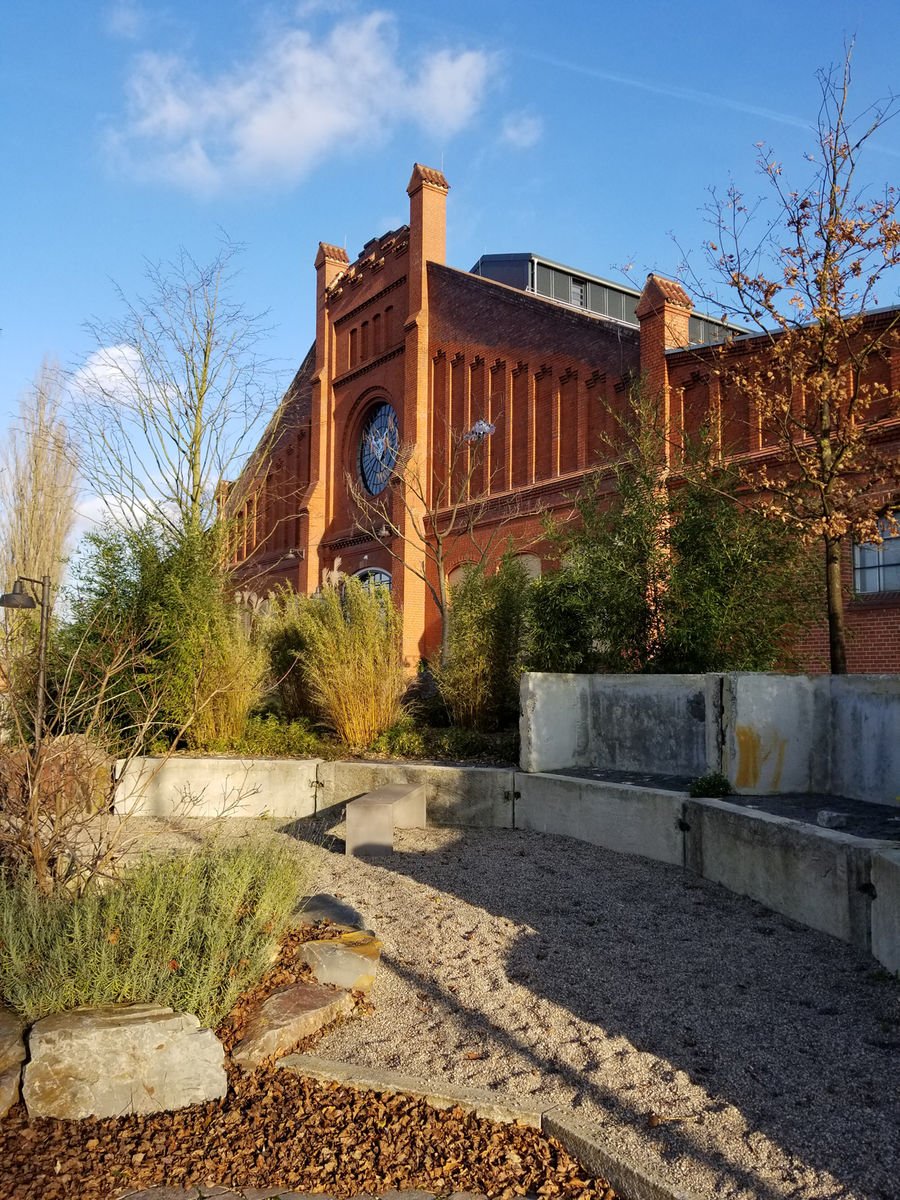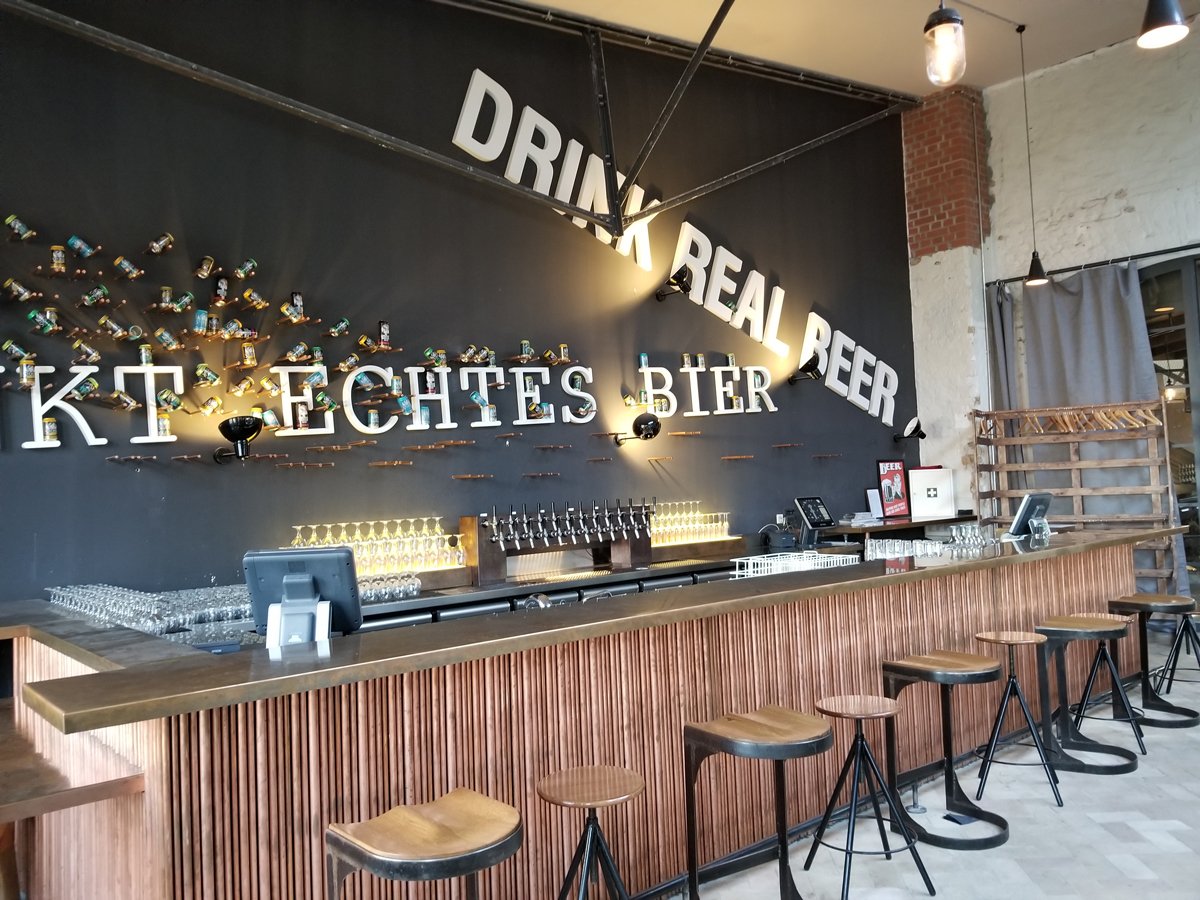Start 14-Day Trial Subscription
*No credit card required

A Talk With Thomas Tyrell, Brewmaster at Stone Brewing Berlin
BC: When someone comes in and asks for a Helles or Pilsner, what do you give them? What's the strategy?
Tyrell: We usually suggest our Go To Session IPA, Ripper Pale Ale or maybe our Little Bastard, which is an Altbier style that just won a gold medal at the 2017 Brussels Beer Challenge. Little Bastard can be found in Germany only on draft here at the restaurant.
BC: Where do you source your New World-style hops for the Berlin brewery?
Tyrell: Mostly from America. The development that the American hop growers have gone through from the craft beer movement is already 20-25 years ahead of European or German growers, but step-by-step our growers here are picking up new varieties and doing tests for interesting aroma and flavor profiles. Based on hop availability, we've made a few adjustments to our beer recipes. For example, in our Berlin-produced Go To IPA we use some Hallertau Mittlefrüh hops. Mittlefrüh means “half early.” Hop growers have early, middle and late harvest hops, and Mittlefrüh is in between middle and early harvest time. It's an elegant yet flavorful hop that goes well in the Go To IPA in my opinion.
BC: In your heart and mind, why do you think Stone is special in today's world beer culture?
Tyrell: I think there is no compromise in what we do. The company makes the beers we want to make and want to drink. Sometimes we make a beer that we think is a good idea and tastes great, but we realize that nobody else wants it. We've learned this the hard way at times. We try out new things all the time and enjoy diversity in beer. We have been producing beer for about two years here now, and we have over 60-70 beer styles already. That’s a lot.
 BC: What's an upcoming recipe or project that excites you?
BC: What's an upcoming recipe or project that excites you?
Tyrell: We have our Hop Revolver program that experiments with different hops in our IPA, and we basically focus on European hops to develop and promote what's local. We're excited currently about Huell Melon and Callista hops, along with the Polish hop Lublin. At Stone Berlin, we are always evolving, trying out new things and seeing how these ingredients and processes mesh together to make wonderful beer.
Just like its California brother, Stone Berlin loves experimenting with hops via its Hop Revolver program, which is currently working on beers with Huell Melon, Callista and the rarely used Lublin hop varietals.
BC: Friends in the U.K. have told me they like the Berlin Stone IPA better than the California version because of the slightly different hop profile. Do you find it a challenge or an enjoyable experience to have your beers compared to the ones from California?
Tyrell: It's definitely fun and interesting to hear the discussion. We have our brewmaster from Escondido visiting this week, and yesterday we did a tasting. The hop flavor and hop aroma changes over weeks in package, and it's challenging for us to get the California and Berlin beers together in the same freshness state. We always compare the last three productions from Richmond, Escondido and Berlin, and usually we compare them when a person has brought them over in a suitcase. Then, it works. When we do it this way, we see the beers are quite similar. There are always some interesting differences - the beers are like siblings that each grow up in a different country, but we always keep our beers true to style. We enjoy using local ingredients, and I think our Berlin Arrogant Bastard is the best example, with all its specialty malts coming from local markets. We like the way Arrogant Bastard comes out here.
BC: Water chemistry is different here than in California. How do you treat your water to make it comparable to California?
Tyrell: We have a similar treatment system here to the one in California. We start with intense filtration that takes out some salts to reduce hardness. This is important for IPAs. We do this with part of our water, then blend with raw, local water to achieve the correct water chemistry for each recipe. It's the correct mixture that makes the brewing water perfect for each style of beer. Our water in Berlin is actually more consistent than in California. Escondido has rain, then times of drought, and this can impact water chemistry. They have to keep an eye on their water in California and work hard for consistency.
BC: Most of your Stone Berlin beers are packaged in cans. How do German consumers feel about cans?
Tyrell: They are getting used to them, but this was a big discussion years ago for us. Many people thought that canning our beers here was crazy. Germans are used to bottle deposits, and years ago cans also had a returnable deposit. But a few years back this practice was stopped for cans, and cans almost disappeared from German shelves. Cans now seem to be coming back, and we believe cans offer much better protection for the beer than bottles.
BC: What's been the most rewarding aspect of being a part of Stone?
Tyrell: In the past, I worked in pub breweries and enjoyed connecting with the beer drinkers in the pub for direct feedback that is mostly honest. I always find this motivating. In the past few years, I worked more in the background of brewery operations. Now I'm back in the front again, being connected to customers and people who visit to try our beer. I'm once again enjoying the interaction and feedback.
BC: Other than Germany, which country in Europe has been the most receptive to your beer?
Tyrell: I think now a great deal of our beers brewed in Berlin go to Great Britain. We started nine or 10 months ago distributing to Great Britain, and it has been extremely successful. People there try our beer, like it, and buy it over and over. This makes us proud.
BC: Brewers in the U.K. tell me that they are five to eight years behind the craft beer culture of America but are catching up quickly. Do you think Germany is also heading in this direction?
Tyrell: Not really. Germany's breweries focus mostly on traditional styles, but the country does have a few small craft breweries starting up that are dedicating themselves to diversity and making a branch for craft brewing. For example, the first large brewery I worked for in Germany has now started an experimental craft brewhouse where they work with gypsy brewers to try out different recipes and styles and make some crazy beer. This is a development I find very interesting in Germany. We always had a great number of breweries, but not a great diversity of beer styles. German beer is wonderful, but often restricted to just a few styles like Pilsner and Hefeweizen. The craft movement will come here, and it has started, but I don't think it will be as revolutionary as in countries like the U.K., Italy, France, Spain and Poland. A real revolution only starts when people are desperate, and German beer drinkers have never been desperate. Craft beer in Germany is more of a minor movement rather than a revolution.

Tyrell appreciates the way Stone does things when it comes to brewing: "I think there is no compromise in what we do. The company makes the beers we want to make and want to drink. We try out new things all the time and enjoy diversity in beer."
BC: What forms your main goal at Stone Berlin over the next five years?
Tyrell: I would like to see that people love our beers even more than now. I think we've planted a seed that is growing, and I want to see it continue. There is no end to our ideas when it comes to brewing. We want to stay energetic and creative and never get into our comfort zone.
===
Owen Ogletree is founder/editor of www.Brewtopia.Info, columnist for Southern Brew News, lecturer at Knoxville's Brewing & Distilling Center, founder/director of Atlanta Cask Ale Tasting and Classic City Brew Fest, a BJCP National Beer Judge, and judge for the Great American Beer Festival and Great British Beer Festival.



